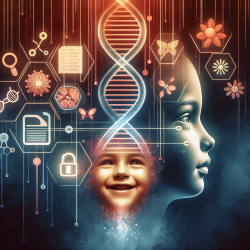The Surprising Benefits of Companion Animals on Child Development
As a passionate advocate for data-driven decisions in speech language pathology, I am excited to share insights from a systematic review that explores the impact of companion animals on child and adolescent development. The study, titled Companion Animals and Child/Adolescent Development: A Systematic Review of the Evidence, sheds light on how pet ownership can influence emotional, cognitive, and social outcomes in children.
Emotional Health: Building Resilience with Pets
The review highlights that pet ownership is associated with a range of emotional health benefits, particularly in reducing feelings of loneliness and enhancing self-esteem. Children with pets often turn to them for comfort and emotional support, which can be crucial in managing anxiety and depression. The presence of a pet can activate the oxytocin system, reducing psychological stress and fostering a sense of security and companionship.
Cognitive and Educational Benefits: More Than Just a Playmate
Companion animals can also play a significant role in cognitive development. The review found evidence suggesting that pets can enhance language acquisition and verbal skills. Children often engage in conversations with their pets, which can stimulate vocabulary building and intellectual development. Additionally, the presence of pets in educational settings has been shown to improve attention and memory, contributing to better academic outcomes.
Social Development: Expanding Social Networks
Social competence and interaction are other areas where pets can have a positive impact. The review indicates that children with pets tend to have increased social networks and improved social play behavior. Pets can act as social catalysts, encouraging interactions with peers and fostering a sense of empathy and responsibility.
Challenges and Future Research Directions
While the benefits are promising, the review also notes the need for more high-quality, longitudinal studies to better understand the causal relationships between pet ownership and child development. It is crucial to consider potential confounding factors and to explore the specific effects of different types of pets on various developmental outcomes.
Conclusion: A Promising Avenue for Enhancing Child Development
Overall, the evidence suggests that companion animals can significantly contribute to the emotional, cognitive, and social development of children and adolescents. As practitioners, we should consider the potential benefits of incorporating pets into therapeutic and educational settings to create positive outcomes for children.
To read the original research paper, please follow this link: Companion Animals and Child/Adolescent Development: A Systematic Review of the Evidence.










